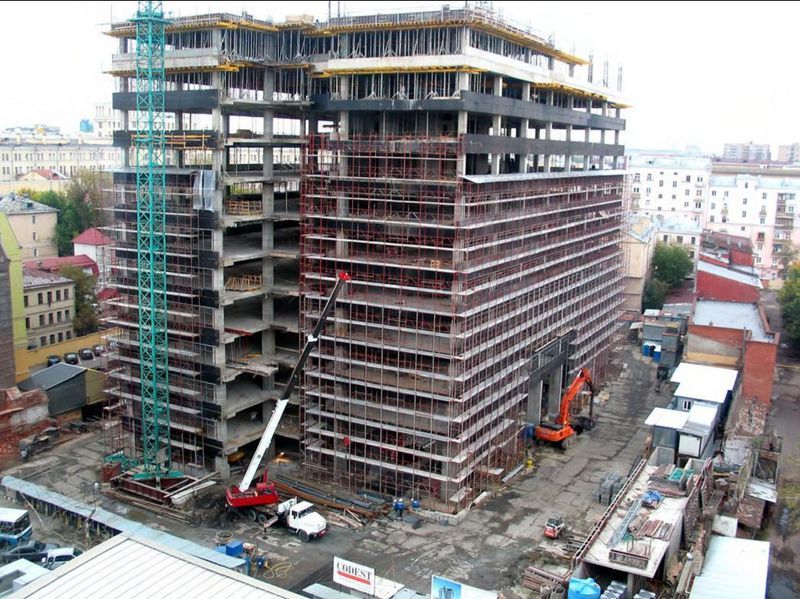While trading of constructions bids outright is regarded as a crime, firms can easily exploit legal loopholes, said Hiep "The criminal law defines this type of trading as a crime but the bidding law has opened up many legal avenues for construction groups to transfer bids they have won to other companies," said Hiep.
 Under the Law on Bidding, the main construction group for a bid can transfer all of the bid's construction work to secondary construction groups.
Under the Law on Bidding, the main construction group for a bid can transfer all of the bid's construction work to secondary construction groups. But this practices has led to shoddy work on building sites. According to Hiep, construction groups that take over bids from other companies must often cut comers to meet tighter profit margins.
Old and unsafe
"Secondary construction groups often use old and unsafe equipment and carry out their work with the cheapest methods to compensate for the fee they must pay to the construction group that won the bid," said Hiep.
Hiep said formalized bidding was popular, and as a result, major construction projects often receive no more than five bidders.
"There seems to be an unwritten agreement between the winners of the bid and secondary construction groups that after winning the bid, the bid will be given to the secondary construction groups," said Hiep.
To make matters worse, Hiep said the State was pouring money into repairing poor quality constructions, resulting in a huge waste of public funds. The HCM City official said examples of poor quality building projects included the collapsed part of the Can Tho Bridge and part of the Ban Ve Hydro-electricity Construction in central Nghe An Province.
Le Quang Hung, chairman of the State Appraising Department for quality of construction said complicated paperwork procedures in construction building often slowed construction work, although ironically there was a.lack of legal documents to manage construction quality as well as to punish violations.
Mostly, bidders quoting the lowest prices were selected, without consideration of the possible poor quality of construction, said Hung, adding that the Bidding Law must be amended to address the situation and better punish violations in the construction sector.
According to the Ministry of Construction, in the last five years there has been an increase in building activities and that there were an average of 6,000 projects under construction each year.
Hiep said labourers were often put at risk when their employers often the secondary construction companies try to cut expenses for labour safety. In the first four months of the year, HCM City recorded 33 labour accidents including 19 cases in the construction sector.
Nguyen Quoc Viet, an official from HCM City's Labour, Invalids and Social Affairs Department, said workplace accidents that did not result in deaths were often not reported, meaning that official figures on accidents at construction sites were much lower than reported.
Trim Thanh My, director of the city's Traumatology and Orthopedy Department, said his hospital received 1,300 patients in the first quarter. Most patients were from traffic accidents, but work-place accidents came second.
Tin mới hơn:
- Experts surprised by audacity of proposed Hanoi master plan
- Clearance problems delay Ha Noi projects
- Phu My Hung Corporation set to start work on mall project
- HCM City seeks infrastructure cash
- Vietnam gov’t sweetens deal for low-income housing
Tin cũ hơn:
- Landlords, tenants spar over padded rents
- Spanish firm sets up branch in town
- New property tax law could fuel land crunch, speculation
- National Assembly ponders easier rules for Viet kieu
- The Thieu Phuong Imperial Garden to be restored




























